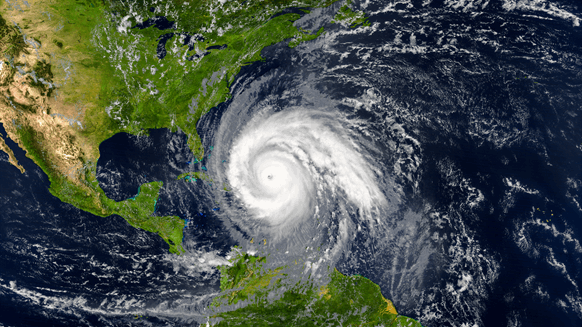
(Bloomberg) -- Tropical Storm Cristobal, now gaining strength in the southern Gulf of Mexico, could grow into a hurricane as it moves toward the Texas and Louisiana coasts early next week, threatening offshore oil platforms, coastal refiners and agriculture.
The system’s winds have reached 40 miles (64 kilometers) per hour, the U.S. National Hurricane Center said in an advisory. It will continue to gather strength in Mexico’s Bay of Campeche before tracking northward toward the U.S., with the potential to make landfall as early as Monday, according to Jim Rouiller, lead meteorologist with the Energy Weather Group LLC.
In reaching tropical storm status, Cristobal marks the fastest start to the hurricane season since 1851, breaking a record set by Tropical Storm Colin on June 5, Phil Klotzbach, a hurricane researcher with Colorado State University, said on Twitter. Its wind speed would have to increase to at least 74 mph to be classified a hurricane.
“Everyone in the energy production area needs to be aware of this one,” Rouiller said by telephone. “I think we have a good chance of a hurricane, and the area from Houston and Galveston to New Orleans seems to be the most likely target.”
Storms in the Gulf of Mexico are closely watched because offshore platforms account for 16% of U.S. crude oil production and 2.4% of natural gas production, according to the Energy Department.
More than 45% of U.S. refining capacity and 51% of gas processing capacity is located along the Gulf Coast. Even a weak system can force evacuations and temporary shut downs. The storm will likely cross the offshore platforms Sunday before making landfall on Monday.
It would be the second U.S. landfall of 2020 after Tropical Storm Bertha struck near Charleston, South Carolina, last month.
The storm will spin around the Bay of Campeche before starting its northward turn on Thursday or Friday, Rouiller said. It will cross the Gulf, where record warm waters for the past few months will give it fuel to strengthen.
Temperatures in the Gulf are currently in the upper 80s Fahrenheit, “which is high octane fuel,” Rouiller said.
To contact the reporter on this story:
Brian K. Sullivan in Boston at bsullivan10@bloomberg.net
To contact the editors responsible for this story:
Lynn Doan at ldoan6@bloomberg.net
Reg Gale, Catherine Traywick




No comments:
Post a Comment